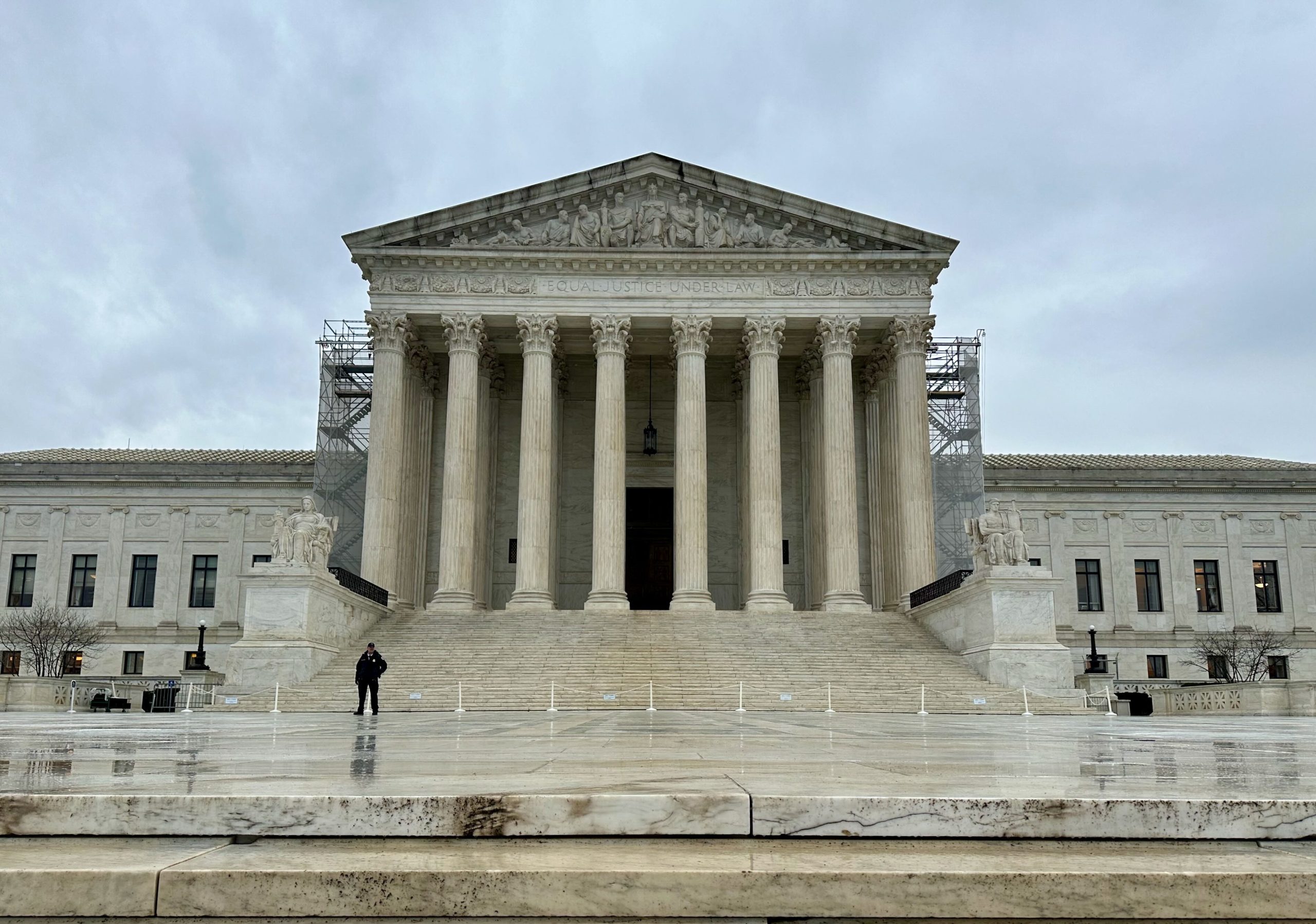
[ad_1]
CASE PREVIEW
on Dec 10, 2024
at 10:56 am

The court docket will hear Dewberry Group v. Dewberry Engineers on Wednesday at 10 a.m. EST. (Katie Barlow)
In a long-running trademark dispute between two firms advertising real-estate growth companies, and each utilizing the identify Dewberry, a trial court docket held that Dewberry Group entities infringed the “Dewberry” marks of Dewberry Engineers. The issue is that when the time got here for assessing damages, the court docket ordered Dewberry Group to pay as damages $43 million in income earned by a number of associates that weren’t events to the litigation, reasoning that each one of them had been, as a sensible matter, a “single company entity.” When the court docket of appeals accepted that line of reasoning, the Supreme Courtroom agreed to evaluate the matter.
The essential downside earlier than the court docket on Wednesday is that there’s a Supreme Courtroom case fairly carefully on level – United States v. Bestfoods – through which the justices rejected the federal government’s argument that the Complete Environmental Response, Compensation, and Legal responsibility Act was such an necessary statute that it ought to create an exception to conventional state-law doctrines that require a excessive (certainly, all however insuperable) bar for actions in search of to disregard company identities and, within the widespread phrase, “pierce the company veil.” Because the court docket defined there, Congress should communicate “straight” to the purpose if it needs to create a particular, much less rigorous doctrine on one thing so historically left to state legislation. (These had been the times earlier than Elon Musk’s tiff with a Delaware decide raised the prospect of the federalization of company legislation.)
The infringers emphasize the language of the Lanham Act, which requires disgorgement of the “defendant’s income,” language that naturally suggests a prudent plaintiff ought to sue – and thus make “defendant[s]” – all of the entities from which it hopes to recuperate damages. As a result of the entire damages awarded right here had been income earned by different entities (none of which had been a “defendant”), the infringers argue that none of these income correctly may be disgorged.
Presumably as a result of Bestfoods is so plainly on level, the trademark holders, Dewberry Engineers, make no critical effort to defend the reasoning of the decrease courts. Moderately, they level to a distinct Lanham Act provision giving the court docket the authority to evaluate damages in a “simply” quantity if a purely compensatory award in opposition to the “defendant” could be insufficient. Right here, the trademark holders contend, a lot of the income correctly ought to be attributed to Dewberry Group, maybe as a result of shady accounting improperly allotted all of the income to the associates, maybe as a result of the opposite entities are shams. The apparent downside – as Dewberry Group factors out – is that none of this was argued under and so there is no such thing as a factual file to help it.
My guess is that many of the argument will contain probing by the justices of the extent to which any of the attainable causes for attributing the associates’ income to Dewberry Group has any help within the file because the case involves the court docket, in addition to plenty of hand wringing about how dangerous it could be for the justices to succeed in out and handle all these questions within the first occasion. Ultimately, although, the alternatives will actually be between reversing the choice out of hand or vacating it to let the decrease courts think about a few of the new arguments.
[ad_2]